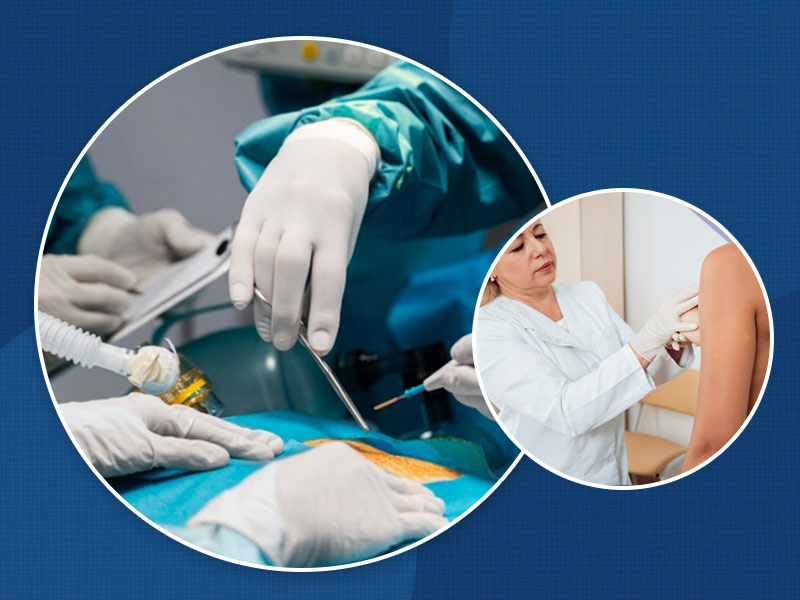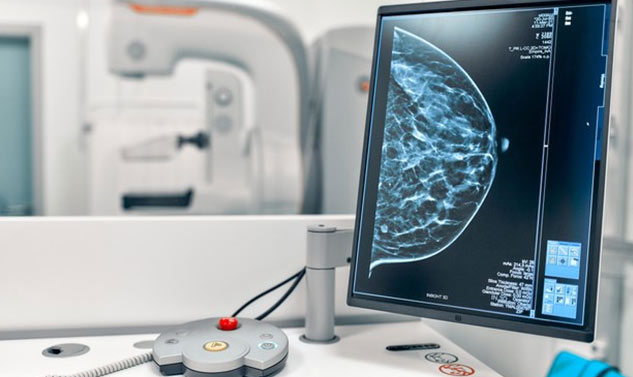
According to the World Health Organization,1 in 12 women are likely to get affected by breast cancer as it is one of the most prevalent forms of cancer among women. This health condition can affect anyone irrespective of any gender but the prevalence of breast cancer among men is much lesser as compared to women. People who are assessed to be at a higher risk with breast cancer can opt for mastectomy, a surgical procedure that removes one or two breasts, partially or completely. But is mastectomy safe? Are there any risks of mastectomy? Onlymyhealth spoke to Dr. Nanda Rajneesh, General Laparoscopic Surgeon at Apollo Spectra Hospital Koramangala Bangalore to know all the details about mastectomy. Refer this article to a breast cancer patient to help them understand more about this surgery and make the right decision.
Table of Content:-
Is Mastectomy Safe?
According to experts, mastectomy has shown to reduce the chance of cancer recurrence by 1% to 3%. A few of the early warning signs of breast cancer that can be kept in check are a lump or swelling in the breast, change in breast size and shape, pain in a specific area, redness, or flaky skin in the breast, irritation or dimpling of breast skin, and nipple discharge. Apart from the above-mentioned abnormalities, if any other unpleasant symptom is noticed then consultation with a medical practitioner is recommended.
Types of Mastectomy
There are four different types of breast cancer surgery(mastectomy) performed, once consulted with an expert it will help the individual get clarity regarding the kind of surgical procedure to opt for.

- Total mastectomy - Also referred to as simple mastectomy, the whole breast is removed in this surgery but the lymph nodes and muscles are left.
- Double mastectomy- This surgery is performed to remove both the breasts of the patient if the doctor finds cancer risk in the other breast too.
- Radical mastectomy- In this surgical process, the affected breast along with chest wall muscles and lymph nodes are removed.
- Modified radical mastectomy- This is partial radical mastectomy where cancerous breast and lymph nodes are removed.
Also Read: Living With Breast Cancer? Here Are 5 Steps To Manage The Disease
Pros and Cons of Mastectomy
Below mentioned are a few risks and benefits associated with mastectomy, that can help an individual get an easy understanding.
Benefits of mastectomy
- Avoid radiation therapy - Patients who opt for mastectomy may be able to avoid the requirement for radiation therapy. This allows women to avoid the skin changes and other side effects that radiation might induce in their bodies.
- Avoid regular mammograms - Following a mastectomy, patients are no longer required to get regular mammograms. Once the surgical procedure is performed, the patient needs to take rest and visit clinics for regular checkups.
- Live More - Mastectomy helps to increase the chances of living longer as research has shown that patients undergoing the surgical procedure have a lower chance of local recurrence.
Along with the benefits it is equally important to help us understand the different risks associated with the surgical procedure, so that an individual is well acquainted with the various after-effects that this surgical procedure can bring.
Also Read: Can Breast Cancer Be Cured Without Surgery? Doctor Explains

Risks of mastectomy
- Increased risk of infection - There is an increased chance of attaining infection if post the surgery proper care has not been taken. It is important to note the early warning signs of the infection and consult with a medical practitioner to avoid further complications.
- Scar tissue formation - The risk of scar tissue formation can be painful for the patient. The scar tissue can be lumpy in shape and built up over time. Consultation with an expert can help to manage the discomfort associated with the same.
- Fluid getting collected - At times patients may experience hematoma or seroma. Hematoma refers to the accumulation of blood under the scar while seroma refers to the accumulation of clear fluid under the scar. Generally, this resolves on its own or after being drained with a needle by an expert.
Women who undergo mastectomy may face it challenging to accept the changes in their body, but it is always advisable to consult with a medical expert beforehand to discuss the options and alternatives, review the family and medical history and understand the procedure.
Image credits- freepik
Also watch this video
How we keep this article up to date:
We work with experts and keep a close eye on the latest in health and wellness. Whenever there is a new research or helpful information, we update our articles with accurate and useful advice.
Current Version
